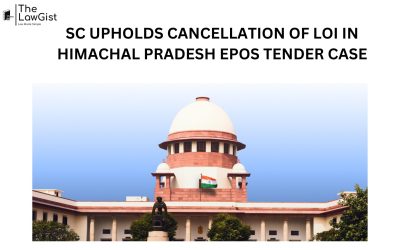
| ASPECTS | DETAILS |
| Case Title | The State of Punjab and Others vs. Davinder Singh and Others |
| Introduction | This case states the constitutionality of sub-classifying Scheduled Castes for reservation purposes. Also, the case specifically, examines the Punjab Scheduled Castes and Backward Classes (Reservation in Services) Act, 2006, which provided certain quotas within the reserved categories. |
| Factual Background | The Punjab legislature passed a law that allocated 25% reservation for Scheduled Castes, with half of this quota (12.5%) specifically reserved for Balmikis and Mazhbi Sikhs. This sub-classification was challenged in the High Court of Punjab and Haryana. The High Court invalidated the law, relying on the precedent set by the Supreme Court in the case of E.V. Chinnaiah vs. the State of Andhra Pradesh, which did not permit such sub-classification. |
| Legal Issues | The major legal issues in this case are:
|
| Applicable Law | The case includes several core constitutional provisions and previous court rulings, including:
|
| Analysis | The analysis determines the legal and constitutional framework surrounding reservations and the possibility of sub-classifying Scheduled Castes. It refers to past judicial interpretations and the implications of these provisions on equality and affirmative action. The justices’ opinions vary, reflecting the complexity of balancing affirmative action with the principle of equality. |
| Conclusion | The Supreme Court’s discussion revealed differing views on whether sub-classification within Scheduled Castes is constitutionally acceptable. The decision suggested that without substantial empirical evidence, such sub-classification might not stand. The complexity and importance of the issue led to the decision to refer the matter to a larger bench for further deliberation. |
| Current Scenario | Currently, the issue is under consideration by a larger bench of the Supreme Court, which will conduct a more detailed examination of the constitutionality of sub-classification within Scheduled Castes. The ruling in E.V. Chinnaiah is being re-evaluated, and future judicial pronouncements are awaited to provide clarity on this matter. |
CASE SUMMARY – The case of The State of Punjab and Others vs. Davinder Singh and Others deals with the constitutionality of sub-classifying Scheduled Castes for reservations. The Punjab legislature’s law, which reserved 12.5% of the Scheduled Castes quota for Balmikis and Mazhbi Sikhs, was struck down by the High Court based on the Supreme Court’s ruling in E.V. Chinnaiah. The Supreme Court is reconsidering this decision, focusing on whether such sub-classifications can be constitutionally valid if supported by empirical evidence. The matter has been referred to a larger bench for a more thorough examination.
SOURCE :







